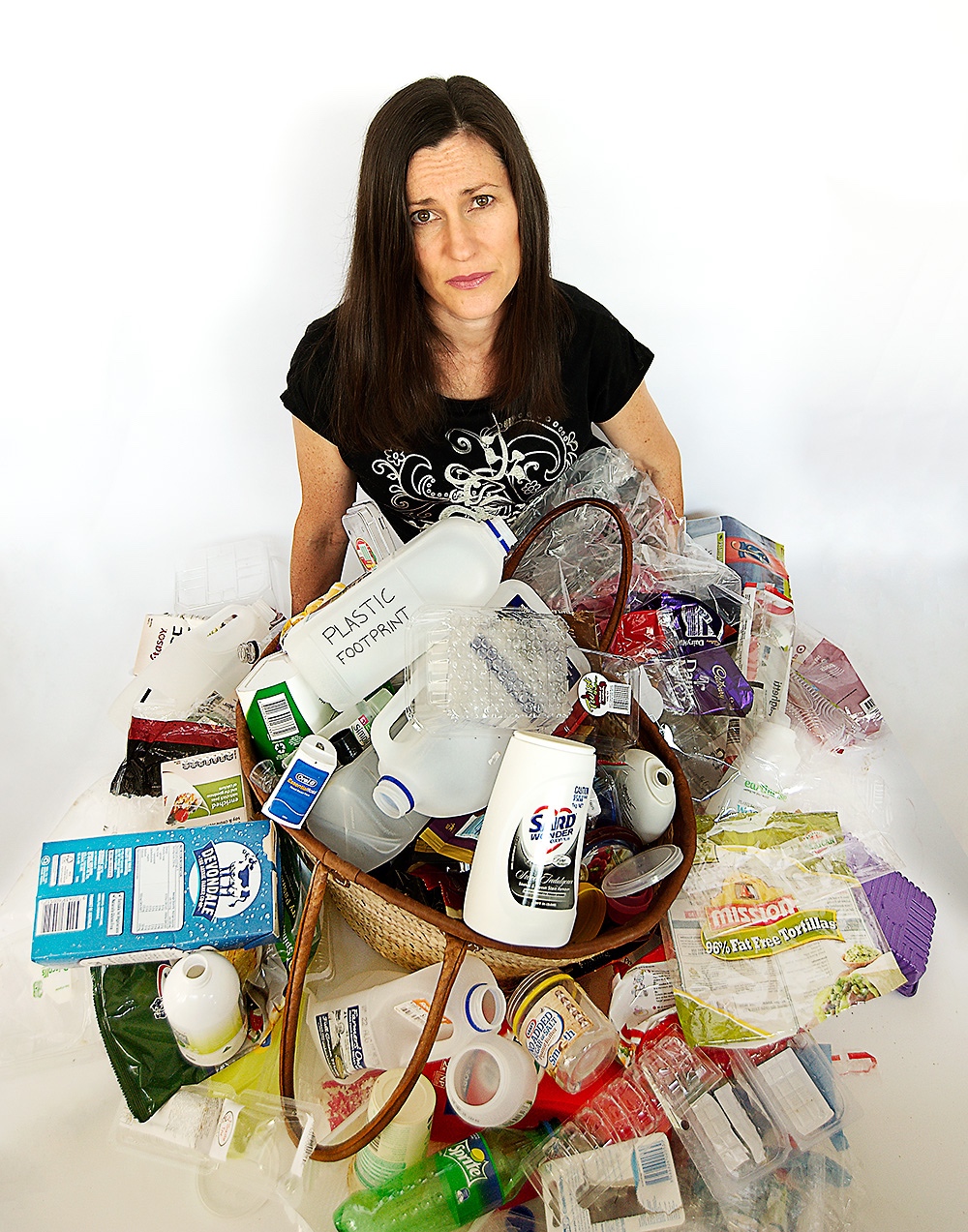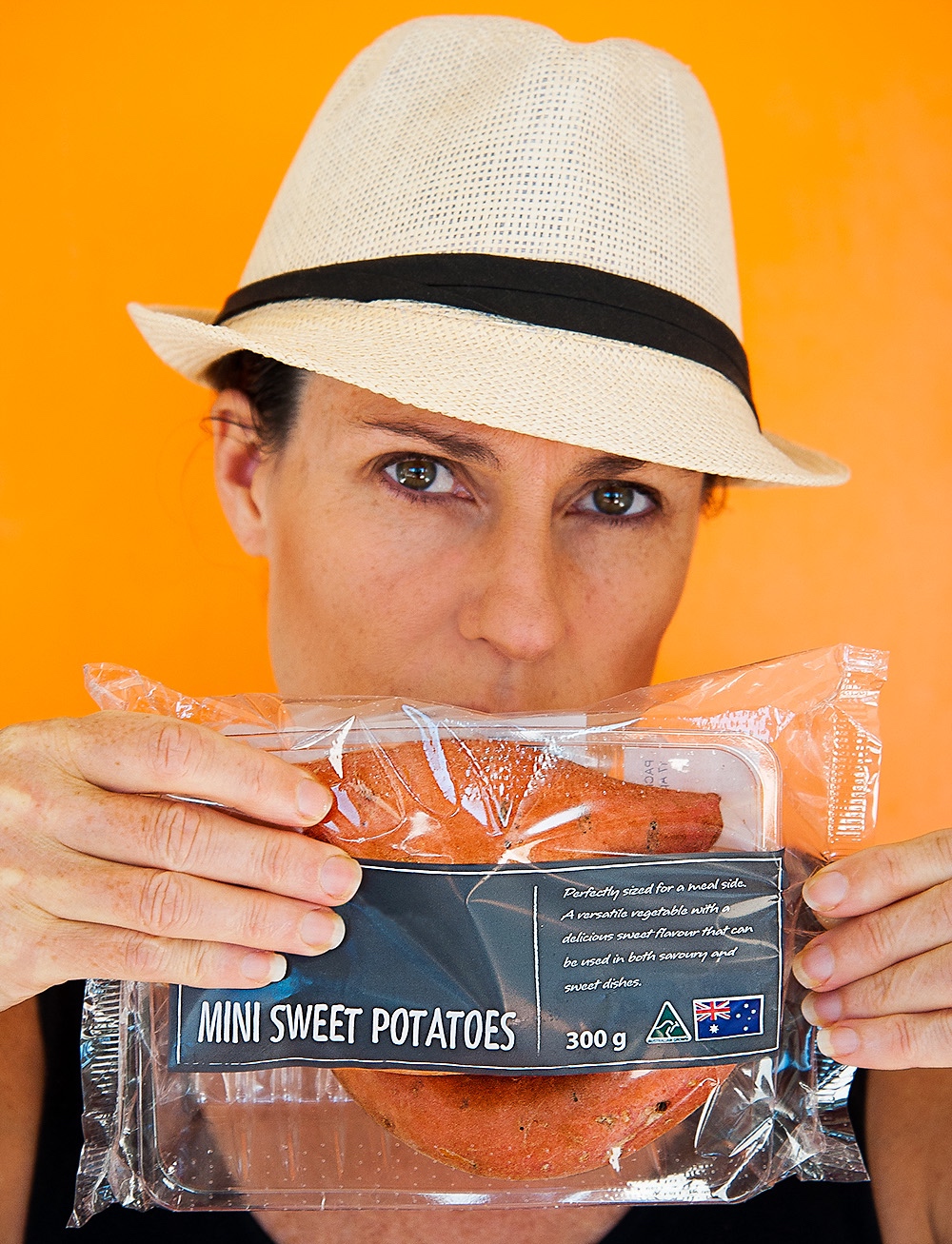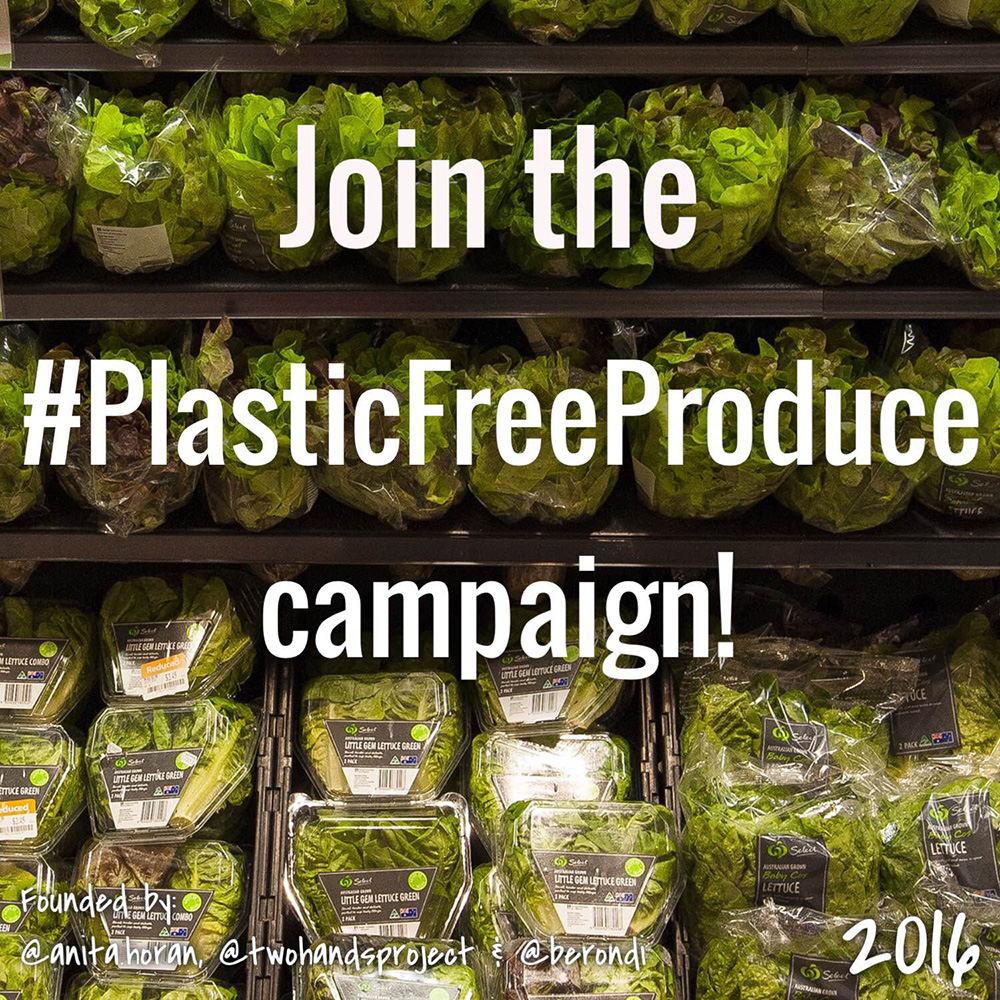Can you cut 1 Tonne of carbon pollution out of your life?
Take the challengeThis is a 1MW Community guest blog from Anita Horan (who is fed up with plastic!)
Before I begin, allow me to introduce myself. I'm a mum living on the outskirts of Sydney. I grow my own vegetables and my family of four—husband and two children—use so little electricity that our quarterly bill reflects the usage of a one person household. We share one car and have a rabbit and six chickens. I'm quite happy to label myself a 'Greenie' as I bring my own shopping bags to the supermarket, take re-usable stainless steel drinking bottles when I'm out and send home-baked treats to school in reusable containers. I don't use cling wrap, I make most of our meals from scratch and I'm a diligent recycler.
However, all of this virtuous behavior did not impact the amount of plastic my family was using. My rubbish and recycling bins were always full. I tried to reduce the amount of plastic I used, but nothing seemed to help. My conscience tormented me until I decided to do something drastic … I saved my family's plastic waste for two weeks, and then I sat in the debris while my partner photographed me. I was mortified at the pile we created and realized every other family would have a pile at least the same size. I tried to envision what this collective plastic pile would look like, but it was beyond comprehension. So I started small and scrutinized my own plastic waste. I became painfully aware that I had no knowledge of where plastic came from and where it went or if it was harming the environment.

My family's domestic plastic usage after two weeks. Photo of the author taken by Tim Horan
I decided to educate myself and have invested the last nine months researching all-things plastic. I made phone calls, sent emails, and approached my local council for information. I searched the internet, attended seminars, went on clandestine tours of my designated recycling plant and even wrote to the Australian Federal Government. I started to document what the supermarkets were doing and secretly observed the contents of other shoppers' trolleys to see what our collective behavior looked like.
I hoped to find research proving plastic is safe, is only used when necessary, that recycling companies take care of it all and no harm is being done whatsoever. Unfortunately, through lots of digging, I discovered, the opposite is true.
I discovered that plastic is poisoning our planet on a massive scale. OK, sorry, let me step back and explain. Most plastic is made from either coal or oil, usually oil. Its chemical structure is changed to turn it into 'fantastic plastic' which is immensely versatile. It's then shaped and shipped, all the while creating greenhouse emissions and contributing to climate change. Then goods are packed in it, with the ever-so-handy barcode, and it's shipped to the shop, where we—average consumers—purchase the plastic wrapped item. We take it home, remove our desired goods and throw the plastic into the regular bin or the recycling bin.
In 2014, global production of plastics reached 311 million metric tons1. Almost all soft, 'scrunchy' plastic is not recycled and thus quickly becomes toxic landfill. Much of the remaining hard plastic goes straight to landfill also, and the small portion that is recycled, is rarely turned back into the item it was originally2. The last time a national plastic recycling survey was conducted in Australia, the overall plastics recycling rate was just 20.5%3.
Recycling is not really ‘closing the loop’ as we’re told. When plastic is recycled, it is often into something like a piece of garden furniture, which will be used for a year or so, until it breaks and then becomes landfill.
It's so lightweight that much of it washes into waterways, where it breaks down more quickly and causes havoc by killing marine life. It strangles them, chokes them, and fills their stomachs so they can't eat regular food. Scientists are now also finding plastic inside of shellfish5, which we're eating … we're consuming the very plastic our food was wrapped in.
Currently, oil is cheap, making plastic inexpensive, so there's little financial incentive for suppliers to stop using it. Hundreds of millions of tons of plastic are being produced every year, even though we have no effective procedures to deal with it. Supermarkets love plastic. It makes their produce look gift-wrapped and speeds up the purchasing process, with a quick scan of the barcode. I've been photographing fresh food in the supermarkets and have noted a steep increase in plastic packaging on fresh produce, items that obviously don't need it, like three baby sweet potatoes on a molded tray, then sealed in a plastic bag which will be placed in a third plastic bag at the check-out. Sweet potato is being 'triple-bagged' when it needs no plastic whatsoever.

(The author with unnecessarily wrapped produce. Why do sweet potatoes need to be in plastic? Photo taken by Tim Horan)
I've been waiting for this trend to reverse, for the government to intervene or for corporations to realize that it's ludicrous and voluntarily stop. However, it's only getting worse and the supermarkets are strategically making pre-packaged food much cheaper than unpackaged, thus forcing their customers to take plastic they don't need. The result is that every single day, countless millions of customers are wheeling trolleys full of plastic out through automatic sliding doors, to soon become permanent toxic landfill or havoc causing marine debris.
I can't wait any longer, it's an environmental emergency. The only option I see is for consumers, en masse to say, "This is unacceptable". To that end, I've teamed up with two other Australians who are also concerned about domestic plastic.
Together, we've launched a campaign to raise awareness and to inform the supermarkets we, as consumers, don't want all this excessive plastic. Our campaign has only been live for a week and has already had around 1000 shares.
Anyone who has access to social media can participate. This will only be successful if millions of average consumers jump on board, but we can do it! You and I and anyone who hands money to a supermarket, can force the reduction of plastic on our fresh food.
Here's how it works:
1) Take a photo of plastic-wrapped fresh produce in your local major supermarket. 2) Post that photo to the Facebook wall (or other social media page) of the supermarket and explain why you don't want your fresh food wrapped in plastic. You could also mention which part of Australia you are in, and you may like to say that you won't buy this plastic-wrapped food. 3) Add the hashtag #PlasticFreeProduce so that we and others can find your post and show our support!

Official #PlasticFreeProduce image to share. Campaign co-ordinators are Anita Horan, Oberon Carter and Two Hands Project
We would also love it if you shared the campaign photo to your own social media page(s) so that others can get involved. We will measure success against real reductions in plastic-wrapped produce in stores. If you tag the three of us (details below) running the campaign we will support your post. And please tell us if and when you see positive change.
Anita Horan is an Australian photographer, writer, and Plastic Reduction Campaigner. As 'an everyday consumer' she is spreading awareness about our addiction to plastic and the harm it is causing our ocean. Her stories and photos are quirky and relatable. Follow her on https://www.facebook.com/anita.the.writer/
Read this next: We need to kick the coffee pod habit
Read this next: Science has worked out the key to a life well lived
1 Million Women is more than our name, it's our goal! We're building a movement of strong, inspirational women acting on climate change by leading low-carbon lives. To make sure that our message has an impact, we need more women adding their voice. We need to be louder. Joining us online means your voice and actions can be counted. We need you.
Footnotes:
( 1 ) "World plastic production 2014." Statista. The Statistics Portal. Accessed May 31, 2016. http://www.statista.com/statistics/282732/global-production-of-plastics-since-1950
( 2 ) There are many types of plastic and recycling I have not discussed here, but the quantities involved are so small, as to make no significant difference. Should you like to discuss different types of plastic and recycling, please visit my Facebook page https://www.facebook.com/anita.the.writer/
( 3 ) "2011-2012 National Plastics Recycling Survey." Plastics and Chemicals Industries Association. Accessed May 31, 2016. http://www.pacia.org.au/reports/plasticsrecyclingsurvey
( 4 ) "Will My Plastic Bag Still Be Here in 2507?" Slate. Accessed May 31, 2016. http://www.slate.com/articles/news_and_politics/explainer/2007/06/will_my_plastic_bag_still_be_here_in_2507.html
( 5 ) "Plastic waste inputs from land into the ocean." Jambeck et al. Published in Science on February 13, 2015. Accessed May 26, 2016. http://www.oceanconservancy.org/our-work/marine-debris/science-paper-executive.pdf
